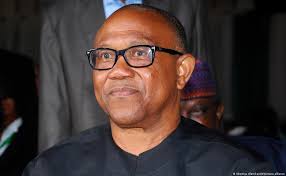
With the 2027 presidential election on the horizon, debates about potential candidates have intensified. Among those frequently mentioned is former President Goodluck Jonathan, whose name continues to spark passionate discussions across Nigeria’s political landscape. While his cousin has recently reaffirmed that Jonathan is 100% legally qualified to contest again, the bigger question remains: Should Nigerians seriously consider him for a return to the presidency?
A Look Back at Jonathan’s Presidency
Goodluck Jonathan’s time in office (2010–2015) was marked by significant achievements, as well as serious challenges. He assumed office in extraordinary circumstances following the death of President Umaru Musa Yar’Adua and subsequently won his own term in 2011.
Achievements
Democratic Consolidation: Jonathan is widely credited for overseeing one of Nigeria’s most peaceful transitions of power. In 2015, despite the odds, he conceded defeat to Muhammadu Buhari — a gesture that earned international praise and reinforced Nigeria’s democratic credentials.
Electoral Reforms: Under his administration, the Independent National Electoral Commission (INEC) became more autonomous and improved electoral transparency, setting a foundation for more credible elections.
Economic Growth: Early in his tenure, Nigeria experienced economic growth driven largely by high oil prices. His government invested in infrastructure projects like road construction, power plants, and the expansion of the Niger Delta development programs.
Education and Health Initiatives: Jonathan’s administration launched programs aimed at improving access to education and healthcare, including efforts to fight polio and improve maternal health.
Challenges and Criticisms
Security Issues: Perhaps the most significant criticism of Jonathan’s presidency was the rise of Boko Haram insurgency. The group’s activities led to loss of thousands of lives and displaced many Nigerians, particularly in the North-East. His administration faced accusations of slow response and intelligence failures.
Economic Vulnerability: The reliance on oil revenues left Nigeria’s economy vulnerable to oil price shocks, which became evident when prices fell, contributing to a recession shortly after his tenure.
Corruption Allegations: Like many Nigerian administrations, Jonathan’s government faced several corruption allegations, though he personally projected an image of humility and was not directly implicated in major scandals.
Should Nigerians Consider Jonathan Again?
Given his mixed legacy, here are some considerations for Nigerians:
Reasons to Consider Jonathan
Experience and Democratic Values: Jonathan’s experience navigating Nigeria’s complex political terrain and his commitment to democratic norms — exemplified by his peaceful concession — are valuable qualities in a country that continues to grapple with electoral tensions.
Potential for Unity: Coming from the Niger Delta, Jonathan has strong ties to a critical oil-producing region and could help bridge regional divides if he campaigns on national unity and inclusive governance.
Focus on Development: His administration’s investments in infrastructure and social services laid groundwork that can be built upon with the right reforms.
Reasons for Caution
Security Record: The failure to effectively tackle Boko Haram and other security challenges remains a significant blot on his record and raises questions about his ability to manage Nigeria’s complex security landscape today.
Economic Diversification Needed: The 2015 economic downturn highlighted the need for diversifying Nigeria’s economy beyond oil—a challenge not fully met during his tenure.
New Generation of Leaders: Nigeria’s youthful population may demand fresh leadership with new ideas, especially as the country faces global technological and economic shifts.
Balancing Hope and Realism
Goodluck Jonathan’s presidency was a blend of commendable democratic milestones and significant governance challenges. His legal eligibility to run again in 2027 opens the door for political possibility, but whether Nigerians should embrace a Jonathan return depends on the country’s priorities.
If Nigerians value experience, commitment to democracy, and regional inclusiveness, Jonathan deserves a place in the conversation. However, if security and economic transformation top the agenda, voters may seek new leaders better equipped for today’s challenges.
Ultimately, the decision lies with Nigerians—who must weigh Jonathan’s legacy, current realities, and future aspirations as they decide who will best lead the nation forward.




